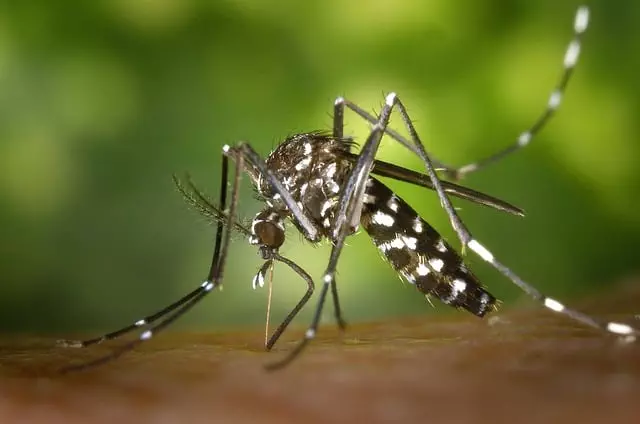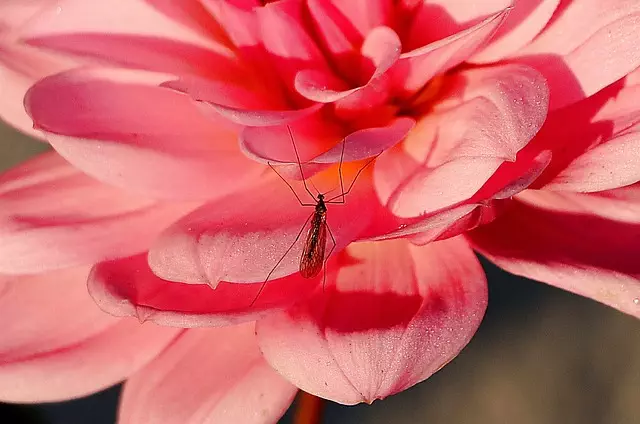Mosquitoes, beyond being a nuisance, pose health risks as disease vectors. Effective mosquito control involves understanding their behavior—from breeding in stagnant water to peak activity at dawn and dusk. Targeted strategies like removing standing water and using repellents are crucial. Natural methods, such as essential oils (citronella, lavender, eucalyptus), offer eco-friendly alternatives to chemical sprays. DIY mosquito traps using household items and natural ingredients provide a budget-friendly solution. Professional services employ advanced treatments, prevention advice, and ongoing monitoring for severe cases. Seasonal adaptations focus on prevention during warm months and targeted control in cooler seasons. Community efforts, including clean-up drives and planting mosquito-repelling plants, complement these strategies, fostering healthier living environments.
Mosquitoes are more than just a nuisance; they pose significant health risks, transmitting diseases like Zika and West Nile. Understanding their habitat and behavior is crucial in implementing effective mosquito control. This article explores affordable alternatives to traditional methods, from natural repellents and DIY traps to professional services. We delve into seasonal considerations and community efforts, empowering homeowners to take charge of mosquito treatment for a safer, healthier environment.
Understanding Mosquitoes: Their Habitat and Behavior

Mosquitoes are more than just a nuisance; they are tiny vectors that can transmit diseases to humans and animals alike. Understanding their behavior is crucial for effective mosquito control. These insects thrive in stagnant water, making their breeding grounds as diverse as puddles, bird baths, and clogged gutters. They prefer warm temperatures, with peak activity often occurring during dawn and dusk. Knowing this behavioral pattern allows us to implement targeted strategies, such as removing standing water and using repellents that disrupt their sensorimotor functions.
By understanding where mosquitoes habitate and when they are most active, we can better arm ourselves against them. This knowledge is pivotal in the ongoing battle for mosquito control, enabling us to create safer, more comfortable living spaces both indoors and outdoors.
Traditional Mosquito Control Methods

Mosquito control has evolved significantly over time, with traditional methods often involving chemical sprays and insecticides. These substances can be effective in reducing mosquito populations but come with potential health risks and environmental concerns. Many traditional techniques rely on killing adult mosquitoes, which leads to a temporary solution as it doesn’t address the breeding grounds.
Additionally, these conventional methods may not be suitable for all areas or situations, especially in urban settings where chemical use is regulated. As such, there’s a growing interest in exploring affordable and eco-friendly mosquito control alternatives.
Affordable Alternatives for Homeowners

For homeowners looking for effective yet affordable mosquito control, there are several DIY and natural solutions that can significantly reduce mosquito populations around their properties. One of the simplest methods involves eliminating standing water, as mosquitoes breed in stagnant water sources like buckets, old tires, and birdbaths. Regularly emptying and cleaning these items can disrupt the mosquito life cycle.
Additionally, using essential oils known for their mosquito-repellent properties, such as citronella, lavender, and peppermint, offers a natural and cost-effective alternative to chemical sprays. Planting mosquito-repelling plants like marigolds and lemongrass in garden beds or containers can also act as a physical barrier against mosquitoes. These affordable alternatives not only help keep homes mosquito-free but also promote a safer, more eco-friendly environment.
Natural Repellents and Their Effectiveness

Many people are turning to natural mosquito repellents as an effective and affordable way to manage these pesky insects, particularly in light of growing concerns about chemical-based mosquito control methods. Essential oils like citronella, lavender, and eucalyptus are popular choices due to their pleasant scents and proven effectiveness. These natural compounds disrupt mosquito navigation systems, making them less attracted to humans. For instance, citronella oil, often used in candles and sprays, has been shown to repel mosquitoes up to 80% for a few hours when applied correctly.
While not as potent as synthetic repellents, the advantage of natural alternatives lies in their environmental friendliness and minimal risk to human health. They are especially beneficial for outdoor settings like gardens and patios, providing an eco-conscious mosquito control solution. Additionally, these repellents can be easily incorporated into homemade remedies, allowing individuals to create their own affordable and personalized protection against mosquito bites.
DIY Mosquito Traps: Cost-Effective Solutions

DIY Mosquito Traps: A Budget-Friendly Approach to Mosquito Control
Creating your own mosquito traps is an affordable and eco-friendly alternative to store-bought options, offering a simple solution for those seeking effective mosquito control on a tight budget. These homemade traps utilize common household items and natural ingredients to attract and eliminate mosquitoes. One popular method involves combining water, sugar, and yeast in a bottle or container, which produces carbon dioxide and heat, luring mosquitoes to their demise. This straightforward process not only reduces costs but also minimizes exposure to potentially harmful chemicals often found in commercial insecticides.
By using these DIY traps strategically placed around your yard or outdoor living spaces, you can significantly decrease mosquito populations without breaking the bank. This natural approach to mosquito control is easily customizable and adjustable, allowing for continuous monitoring and adaptation to changing environmental conditions. With a little creativity and resourcefulness, individuals can take charge of their outdoor comfort and enjoy bug-free zones at an economical cost.
Professional Mosquito Treatment Services

Professional Mosquito Control Services play a vital role in maintaining mosquito-free environments, especially in areas with persistent mosquito problems. These services offer specialised treatments that go beyond do-it-yourself methods. Trained technicians utilise advanced equipment and eco-friendly products to target mosquito breeding grounds and resting places effectively. By understanding the lifecycle of mosquitoes, professionals implement strategic plans to disrupt their populations, ensuring a more comfortable outdoor experience for residents.
Mosquito control experts also provide ongoing monitoring and maintenance, which is crucial for long-term success. Regular inspections help identify new breeding sites and allow for prompt treatment. Additionally, these services often include advice on preventing future infestations, such as eliminating standing water and implementing landscaping changes. This comprehensive approach makes professional mosquito control a reliable solution for those seeking efficient and sustainable Mosquito Control methods.
Seasonal Considerations for Mosquito Control

Mosquito control measures often need to be tailored according to seasonal changes, as these insects are most active during warmer months. In spring and summer, when mosquitoes breed and proliferate, it’s essential to implement preventive strategies such as eliminating standing water, where they lay their eggs, and using appropriate repellents. Regular maintenance of outdoor spaces can significantly reduce mosquito populations.
As fall approaches, the focus shifts to managing remaining adult mosquitoes. This may involve targeted treatments in specific areas, especially in lush greenery or near bodies of water, known breeding grounds. Seasonal variations in temperature also impact mosquito behavior, with reduced activity during colder months. However, taking proactive steps during peak seasons can help create a more comfortable outdoor environment year-round for residents and reduce the risk of mosquito-borne diseases.
Community Efforts to Combat Mosquitoes

In many communities, residents are taking matters into their own hands to combat mosquito populations and improve local Mosquito Control. These collective efforts often involve a combination of simple yet effective strategies. For instance, organizing neighborhood clean-up drives to eliminate standing water—a primary breeding ground for mosquitoes—can significantly reduce their presence. Additionally, planting mosquito-repelling plants like citronella or lavender around homes and public spaces can act as natural barriers. Community gardens dedicated to cultivating such plants can become vibrant centers of cooperation and pest management.
Local governments and community organizations also play a crucial role in disseminating knowledge about Mosquito Control. Educational workshops and awareness campaigns inform citizens about the importance of proper waste disposal, regular pool maintenance, and using mosquito nets or repellents. By fostering a culture of collective responsibility, these initiatives empower communities to take proactive steps against mosquitoes, creating healthier and more enjoyable living environments for everyone.
